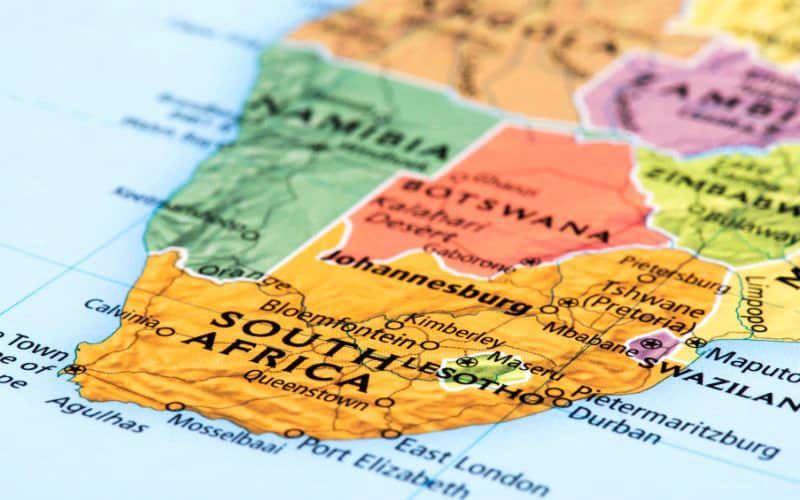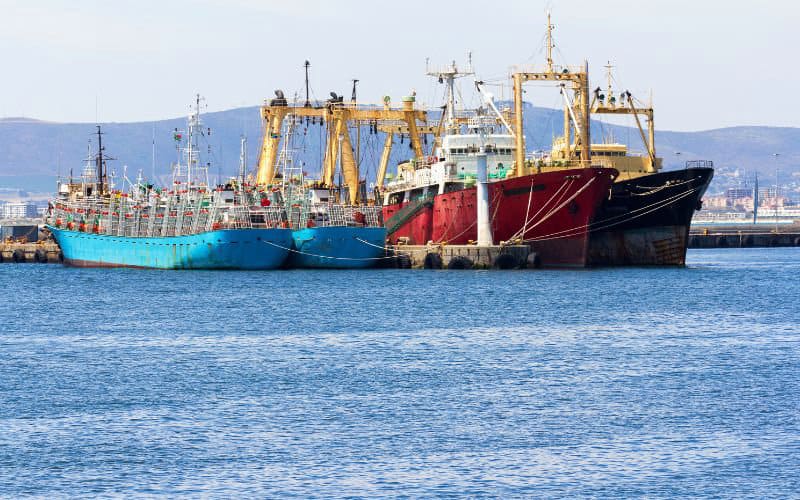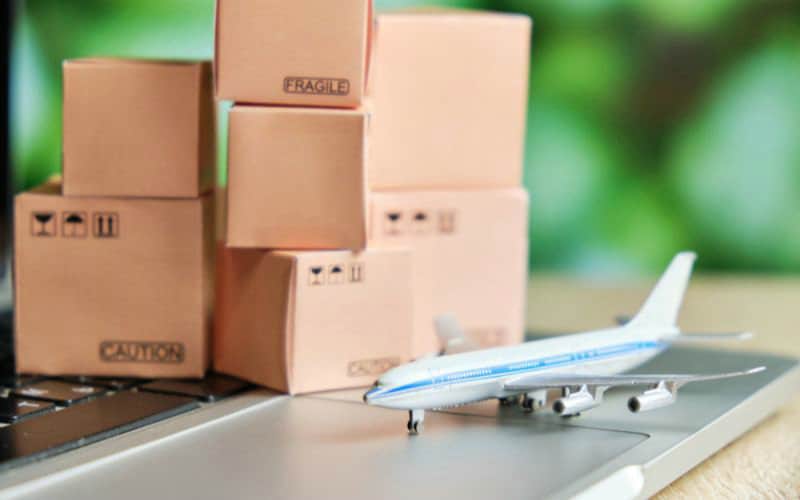
Understanding Shipping from China to South Africa
With the factories in China increase global influence, the trade between China and South Africa also becomes hot. When importing from China to South Africa, you have several factors to consider for a smooth transaction. You may think that the shipping progress is too difficult, but if you use a freight forward to handle your shipping process, things can be more easier than you think. The trade relationship between the two countries has made various options available each with its own advantages.
The three major shipping methods are Sea shipping, Air Shipping, which is also called air and sea freight, and express shipping.
Sea Shipping from China to South Africa:
- FCL (Full Container Load): You book an entire container for your goods. Best for large volumes as it can be more cost-effective.
- LCL (Less Container Load): Suitable for smaller shipments. You share container space with other importers.
AirFreight from China to South Africa:
- Faster Delivery: Prioritize speed if your goods are time-sensitive.
- Higher Cost: Typically more expensive than sea freight, it’s best used for high-value or perishable items.
Steps to Import Products From China to South Africa
- Identify Your Products: Determine what products you want to import and classify them according to the South African Customs Tariff.
- Partner with Freight Forwarding: A reliable agent can navigate the logistics and ensure compliance with import regulations.
- Understand Import Duties: Familiarize yourself with South Africa’s import duties to avoid surprises in costs.
- Import Permit Requirements: Some goods may need an import permit. Check the requirements and processing times.
Choosing the Right Freight Method
When deciding the way to ship between air shipping and ocean shipping for your shipping needs from China to South Africa, consider factors like timing and budget. Both options come with their own set of advantages and cater to different shipping needs based on urgency, volume, and cargo size.
Air Freight Options and Benefits
Air freight from China to South Africa is your go-to option if time is of the essence. Thanks to its speedy delivery, air freight is perfect for transporting high-value, low-volume items or time-sensitive goods. Although shipping costs for transmit courier to South Africa by air are generally higher than sea freight, the faster transit time may justify the cost for your urgent shipments.
- Benefits of Air Freight:
- Fast Delivery: Ideal for urgent shipments.
- Less Handling: Generally ensures the safety of fragile items.
- Regular Schedules: Offers dependable flight schedules.
Sea Freight Services and Advantages
Sea freight is a economical way for larger, non-urgent shipments. It is capable of handling large volumes and heavy cargo sizes, making it suitable for a variety of goods. The shipping costs for sea freight are typically lower compared to air freight, especially for substantial volumes. However, it’s important to plan well in advance as transit times are considerably longer compared to air transportation.
- Advantages of Sea Freight:
- Economical: More affordable for bulk shipments.
- Capacity: Can transport hefty volumes and oversized cargo.
- Eco-Friendly: Lower carbon footprint than air freight.
Tax and Fees
When you import goods from China to South Africa, you need to be aware of the various taxes and fees that apply. Your expenses will typically include Import Duty, Value-Added Tax (VAT), and other possible charges depending on the product type.
- Import Duty: This is a percentage of the value of your goods and varies according to the product’s classification under the Harmonized System (HS) code.
- Value-Added Tax (VAT): VAT is calculated based on the Cost, Insurance, and Freight (CIF) value of the goods plus the import duty. In South Africa, the standard VAT rate is 15%.
The calculation for VAT is as follows:
VAT = [ (Customs Value + 10% thereof) + (Import Duty) ] x 15%
The 10% mark-up is added to the customs value when importing from non-Southern African Customs Union (SACU) countries.
It’s crucial to use accurate Harmonized System (HS) codes and value declarations to avoid customs complications. Misdeclaring items can lead to penalties or even seizure of goods.
Remember to calculate the full cost before finalizing your imports from China, which includes:
- Customs Value
- Shipping Costs
- Import Duty
- VAT
Cost of Shipping from China to South Africa

The Cost of Sea Freight from China to South Africa
Here is a summary of the estimated sea freight charges from China to South Africa for FCL (full container load) and LCL (less than container load):
| Shipping Method | Cost |
|---|---|
| FCL 20ft container | $1,700 – $1,900 |
| FCL 40ft container | $2,000 – $4,000 |
| LCL (per cubic meter) | $50 – $100 |
The Cost of Air Freight from China to South Africa
| Route | Cost per kg | Transit Time |
|---|---|---|
| Beijing to Johannesburg | $4 – $7 | 4 days |
| Shanghai to Johannesburg | $5 – $10 | 5 days |
| Shenzhen to Cape Town | $4 – $7 | 4 days |
| Guangzhou to Durban | $6 – $9 | 5 days |
| Chengdu to Johannesburg | $5 – $7 | 5 days |
| Hangzhou to Cape Town | $4 – $6 | 4 days |
*Please note that the rates shown are only estimates to provide an indication of pricing. Actual quotes will vary depending on the specific details of the shipment, such as the goods, weight, dimensions, delivery timeline, and other requirements.
We work with each customer individually to develop customized shipping solutions tailored to your needs and budget. You can expect competitive pricing that aims to deliver great value.
Please contact us to discuss your shipping needs – Luckystar looks forward to putting together an unexpected price for you. We will offer you the cheapest way to ship your goods, we are your most trustworthy shipping company.
Shipping Routes and Major Ports in China and South Africa

When you’re considering shipping goods from China to South Africa, knowing the major ports of departure and arrival, as well as the key shipping routes, is crucial for planning your logistics efficiently.
Airports in China
Major Airports in China
| Airport | Introduction |
| Shenzhen Bao’an International Airport (SZX) | One of the busiest airports in China, serving over 49 million passengers in 2019 Major hub for SF Airlines and Shenzhen Airlines Offers cargo services linking Pearl River Delta manufacturing region with global markets |
| Guangzhou Baiyun International Airport (CAN) | Main hub for China Southern Airlines Third busiest airport in China handling over 75 million passengers annually Major freight hub connecting Guangdong province with North America, Europe, Africa etc. |
| Hong Kong International Airport (HKG) | One of the busiest cargo airports globally Strategic location makes it a leading regional passenger and logistics hub Connects to over 220 destinations via 113 airlines |
| Beijing Capital International Airport (PEK) | Busiest airport in China serving over 100 million passengers per year Main hub for Air China, Hainan Airlines and China Eastern Airlines Offers direct flights to over 120 international destinations |
| Shanghai Pudong International Airport (PVG) | Second busiest airport in China after Beijing Main hub for China Eastern Airlines and Shanghai Airlines Handles over 80 million passengers and over 3 million tons of cargo annually |
| Chengdu Shuangliu International Airport (CTU) | Major air cargo hub in southwest China Links Sichuan region with domestic and global markets Home base to Sichuan Airlines, Air China and Shenzhen Airlines |
| Xi’an Xianyang International Airport (XIY) | Main gateway for China’s ancient Silk Road region Links Xi’an with key domestic and international destinations Serving both passenger and cargo traffic |
Airports in South Africa
Major Airports in South Africa
| Airport | Introduction |
| Cape Town International Airport | South Africa’s second busiest airport, handling over 10 million passengers annually A major gateway for the Western Cape region and Cape Town, which is a popular tourist destination Offers flights to destinations within South Africa, Africa, Europe, the Middle East and South America |
| O.R. Tambo International Airport (Johannesburg) | The busiest and largest airport in Africa, serving over 21 million passengers per year Major international and domestic hub located in Johannesburg Offers extensive route network to over 100 destinations globally |
| King Shaka International Airport (Durban) | The third busiest airport in South Africa, handling over 5 million passengers per year Main gateway for the KwaZulu-Natal region and city of Durban Hub for domestic flights and some regional international destinations |
| Kimberley Airport | Serves the Northern Cape provincial capital of Kimberley Small regional airport handling domestic flights Links Kimberley to hubs like Johannesburg and Cape Town |
Seaports in China

Major Seaports in China
| Seaport | Introduction |
| Qingdao Port | Major hub serving import and export needs of Shandong and northeast China region Specializes in energy, iron ore, container shipments, and trade with Japan and Korea Handles 500 million tons of cargo and 18 million TEUs per year |
| Tianjin Port | The largest port in northern China Strategic location on Bohai Bay with trade links to Yellow Sea, Japan, Korea, and beyond Specializes in metal ore, coal and oil shipments with a growing focus on containers |
| Shanghai Port | World’s busiest container port, handling over 43 million TEUs annually Located at the mouth of the Yangtze River Delta, connecting Shanghai to global import and export markets Comprises terminals across Huangpu River, Yangshan Deepwater Port, and coastal harbors |
| Ningbo Zhoushan Port | World’s largest port by cargo tonnage at over 1 billion tons per year Strategic location in Zhejiang province at the intersection of major domestic and global shipping lanes Advanced facilities with 260 berths, including 50 deep-water berths |
| Xiamen Port | Deep-water port in Fujian province providing efficient logistics linking China with global markets A major hub for shipping and transportation serving the Taiwan Strait economic zone Handles over 10 million TEUs annually with connections to Southeast Asia, Europe, and the Americas |
| Shenzhen Port | A major gateway for China’s foreign trade, connecting to over 140 shipping routes and 300 ports worldwide Strategic location in Guangdong province facilitating trade flows in the Pearl River Delta region Advanced facilities, including 47 production berths and automated container handling |
Seaports in South Africa
Major Air ports in South Africa
| Seaport | Introduction |
| Cape Town Port | Strategic location and natural harbor on the route between South America, Europe, and Asia Specializes in handling fruit, wine, perishable exports, and fish products Also has a terminal for cruise ships and handles over 1 million tons of dry bulk cargo |
| Port of Elizabeth | The main outlet for copper exports from other African countries like Zambia and Zaire Handles agricultural exports with a 75,000-ton grain elevator – the largest in South Africa Services the Eastern Cape region with over 3,400 meters of quayage |
| Port of Durban | Busiest general cargo port in Africa, handling over 80 million tons annually A major hub for container traffic with dedicated terminals and 15,195 meters of quayage Strategic location serving KwaZulu-Natal region and wider Southern African hinterland |
| Saldanha Bay Port | Largest and one of the best natural ports in Africa with 14.6m depth and 5,000 hectare area Specialized in handling and exporting mineral ores from the Northern Cape region Ore loading jetty can accommodate carriers up to 350,000 tons |
| Richards Bay Port | Built in the 1970s mainly for coal exports from the eastern Transvaal region Now handles almost 50% of total cargo in South Africa with a capacity for 250,000 ton ships Major bulk cargo and general cargo hub with extensive transportation links |
Common Shipping Routes and Shipping Time from China to South Africa
·Transit time of sea freight from China to South Africa
| Route | Transit Time |
|---|---|
| Shanghai to Durban | 26 days |
| Shenzhen to Cape Town | 24 days |
| Ningbo to Port Elizabeth | 25 days |
| Guangzhou to Richards Bay | 23 days |
| Qingdao to East London | 21 days |
| Tianjin to Durban | 18 days |
·Transit time of airfreight from China to Africa
| Route | Transit Time |
|---|---|
| Beijing to Johannesburg | 4 days |
| Shanghai to Johannesburg | 5 days |
| Shenzhen to Cape Town | 4 days |
| Guangzhou to Durban | 5 days |
| Chengdu to Johannesburg | 5 days |
| Hangzhou to Cape Town | 4 days |
Factors Influencing Transit Time:
- Chinese Holidays: Delays often occur during holidays such as the Chinese New Year, Golden Week, and the Dragon Boat Festival.
- Peak Seasons: Be mindful that during peak shipping times, like before the Chinese New Year, rates can increase and schedules might be tighter.
- Regular Updates: Stay updated with your freight forwarder’s schedule changes, which might affect your planned shipping date.
- Transit times are estimates and can vary slightly depending on connections, customs clearance, etc.
- Air freight is much faster but more expensive than sea freight.
Prohibited and Restricted Items

When shipping from China to South Africa, you need to be mindful of the local customs regulations. Prohibited items are those completely barred from entry into South Africa, while restricted items may require special permits or certifications.
Prohibited Items:
- Counterfeit goods
- Illegal reproductions of copyrighted works
- Goods made in prisons
- Used clothing and textiles
- Plants and animals without proper permits
- Unregistered pharmaceuticals and medicines
- Cigarettes over specified weight limits
Restricted Items (Require Permits/Licenses):
- Alcohol and tobacco products
- Firearms and ammunition
- Explosives and fireworks
- Medications and pharmaceuticals
- Plants and plant products
- Food products
- Used and second-hand goods
Always double-check with the latest customs guidelines or consult with your shipping provider to ensure compliance. Shipping restricted items without proper clearance can result in fines or confiscation of your goods. It’s crucial to be aware of and adhere to these regulations to avoid any inconveniences during the import process.
Navigating Customs and Documentation
Before diving into shipping from China to South Africa, you need to have a clear understanding of the customs clearance process and the essential shipping documents required. These elements ensure that your goods move through customs efficiently, avoiding costly delays.
Customs Clearance Process
Customs clearance is a mandatory step in importing goods into South Africa. Initially, you must register as an importer with the South African Revenue Service (SARS) to obtain an Importer Customs Code. This code is vital for the clearances at customs.
- Submit your documents: Provide the necessary documentation, including the commercial invoice, packing list, and bill of lading to customs authorities.
- Calculation of import duties: Customs officials will calculate the import duties based on the value of your goods, and you’ll be required to pay the calculated amount.
- Inspection of shipment: Your shipment may be selected for inspection to ensure that the declared goods match the accompanying documents and comply with local regulations.
- Clearance: Once satisfied, customs will clear your shipment for entry into South Africa.
Essential Shipping Documents
Securing the correct shipping documents is crucial to a smooth customs clearance process. Here’s a list of documents you will typically need:
- Commercial Invoice: Outlines the value, quantity, and description of the exported goods.
- Packing List: Provides details about each package, including contents, weight, and packaging type.
- Bill of Lading: Acts as a receipt issued by the freight forwarder, detailing the goods being carried.
- Certificate of Origin: This document certifies the country in which your goods were manufactured.
Your freight forwarder often plays a key role in helping you gather and manage these documents, ensuring you comply with all the customs regulations. Having your paperwork in order will make the customs clearance procedure a breeze.
Logistics and Additional Considerations
When shipping from China to South Africa, it’s essential to understand the intricacies of the logistics and manage additional considerations such as insurance and tracking for a smooth transaction.
Insurance and Risk Management
Properly insuring your cargo is critical. Cargo insurance protects against losses during shipping, whether by air or sea. Policies may differ, so ensure that yours covers all potential risks from loading to unloading. Here are key aspects of insurance to consider:
- Risk Assessment: Evaluate risks based on cargo type, value, and route specifics.
- Coverage Options: Choose between All-Risk or Named Perils based on your cargo’s susceptibility to damage.
- Claims Process: Familiarize yourself with the procedure to file a claim in case of loss or damage.
Tracking and Logistics Network
A robust tracking system coupled with a strong logistics network ensures that you remain informed about your shipment’s status. Most reliable freight forwarders or shipping companies provide tracking services, allowing you to monitor your shipment in real time.
Key tracking and logistics aspects include:
- Real-Time Updates: Receive notifications about cargo location and movement.
- Network Coverage: Ensure the forwarder’s network covers all transit points between China and South Africa.
Why Choose Us? Luckystar Logistic
Established in 2022, Luckystar is an esteemed member of the Federal Maritime Commission (FMC) and operates as a Non-Vessel Operating Common Carrier (NVOCC). The company’s mission is to deliver superior service quality at reduced costs, primarily serving China, the USA, Canada, and Europe. With core team members boasting over 20 years of experience in logistics, Luckystar brings considerable expertise to the table. Since its inception, the company has been dedicated to offering global door-to-door transport and logistics solutions, emphasizing dependability, adaptability, and responsiveness.
We’re not just a company; we are experts in transportation! Offering industry-leading solutions, we take pride in providing premium shipping services at a fraction of the cost of other freight forwarders, both in China and across the globe. Here’s why partnering with us is the smart move:
Accuracy You Can Count On:
Say goodbye to delivery delays and hello to timely delivery, which is vital for businesses needing to deliver goods swiftly to their customers.
Your Passport to Global Reach:
Our wide network of delivery destinations virtually covers the entire globe, offering extraordinary opportunities for businesses aiming to expand their reach. You can be assured that your package will find its way to almost any corner of the world, taking your business global!
Track with Ease:
Say goodbye to guesswork. Our stringent procedures afford you a live tracking mechanism, making it easy for you to follow your shipment’s progress at every stage of its journey. Stay informed and enjoy peace of mind, knowing exactly where your shipment is anytime you need to know.
Personalized Service, Every Step of the Way:
One of our dedicated team members will personally oversee your shipment from start to finish. This, coupled with our commitment to transparency and constant communication, ensures you are kept updated on the progress of your cargo every step of the way.
When shipping hazardous materials, it’s crucial to work with experienced service providers to ensure that your shipment is handled safely and efficiently. By partnering with us, you can have peace of mind knowing that your shipment is in good hands.
Are you looking for an experienced shipping agent to assist you in shipping? Contact us. We’re always ready to help. Offering the unbeatable cheapest shipping rates for international shipping, our services are more affordable than you’d believe. Don’t hesitate! Get in touch with us today.
